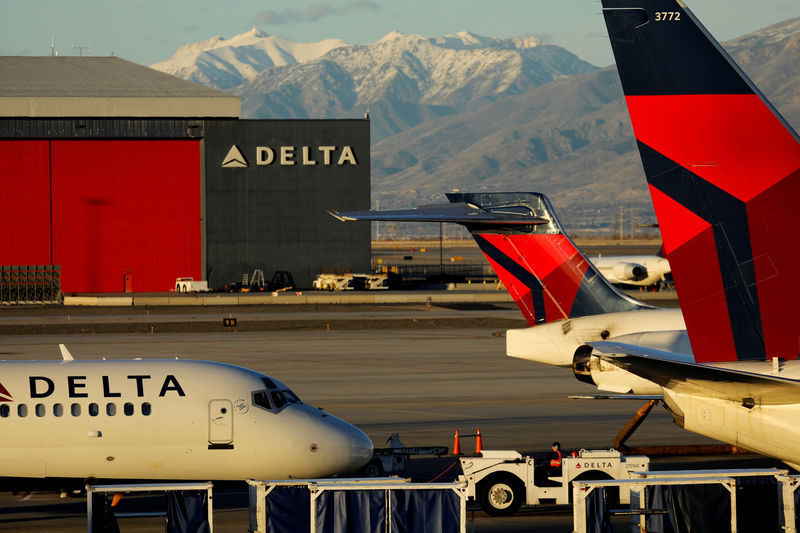By Tracy Rucinski and Ankit Ajmera
(Reuters) - Delta Air Lines Inc (N:DAL) said on Thursday it sees a return to margin growth next year as it posted a estimate-beating rise in quarterly profit on strong demand and tight cost controls, sending shares higher.
With oil prices hovering near four-year highs, Delta and peers such as American Airlines Group Inc (O:AAL) and Southwest Airlines Co (N:LUV) are facing a surge in fuel costs that is weighing on profits, even as demand for air travel is strong.
To combat that headwind, airlines have increased ticket prices, used more fuel-efficient planes and hiked baggage fees.
"Our commercial momentum and improved cost trajectory give us confidence that we are on a path to deliver continued top-line growth and expand margins as we move into 2019," Delta Chief Executive Officer Ed Bastian said.
Net income rose to $1.31 billion, or $1.91 per share, in the third quarter, from $1.16 billion, or $1.61 per share, a year earlier. The company took a $30 million charge from Hurricane Florence last month in the quarter, but said the impact from Hurricane Michael has been minimal.
On an adjusted basis, Atlanta-based Delta earned $1.80 per share, beating the average analyst estimate of $1.74, according to Refinitiv data.
Adjusted operating revenue rose 8 percent to an all-time third-quarter record $11.8 billion, driven by a rise in domestic and transatlantic revenues.
Corporate travel remained strong in the United States and demand should not be hurt by rising U.S. interest rates, the carrier said.
Shares climbed 3.4 percent to $51.42, underpinning gains on the Dow Jones US Airlines index (DJUSAR) and S&P Composite 1500 Airlines index <.SPCOMAIR>.
J.P. Morgan said in a note to investors that Delta's outlook left the door open for fourth-quarter margin expansion and higher margins in 2019, which it sees as "critical" for the stock performance.
Delta said it would keep any growth in nonfuel unit costs below 2 percent next year.
The company expects overall capacity to rise about 3 percent in 2019, and said it is replacing older narrowbody aircraft with larger, more efficient Airbus SE (PA:AIR) A321s and Boeing Co (N:BA) 737-900s through 2020. This will provide a nearly 15 percent improvement in seat cost, executives said.

Delta said it expects earnings of $1.10 to $1.30 per share in the fourth quarter, in line with estimates, and total annual revenue growth of about 8 percent versus 2017.